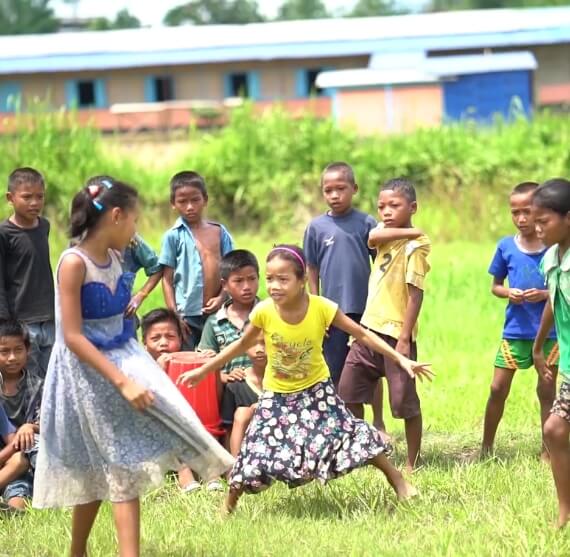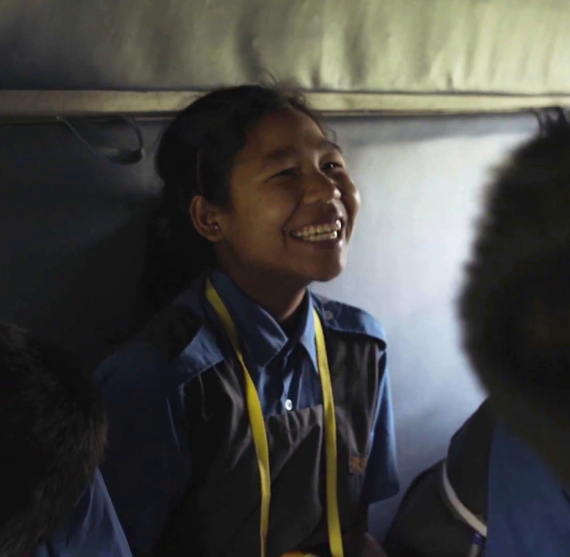
About
The Great India Talent School (GITS) is the first programme of GITF. It is an initiative to ensure no child is left behind in the pursuit of education for all.
GITS is in collaboration with the Government of Tripura, The Akshaya Patra Foundation, donors, and the local community. It is alignment with five Sustainable Development Goals of the United Nations.
- The 1 st Great India Talent School, also known as Mahan Bharat Pratibha Vidyalaya was inaugurated in Kashirampara, Tripura on 29 March 2017.
- We started by providing education from LKG to Grade 3 with 350 students.
- Currently, GITS Kashirampara is educating around 700 children from LKG to Grade 8.
- Most of the children are first-generation learners.
- Majority of them belong to the Reang tribe and are predominantly from Naisingpara and Ashapara refugee camps in Tripura.
- These children have equal access to quality education and books like that of children in urban regions of the nation.


The Programme
The idea is to educate, enable, and empower children of tribal and rural communities in India by setting up multiple educational institutions that will enable them to pursue higher education in their fields of interest while remaining rooted to their unique identities.
- GITS provides free education to tribal children.
- It adheres to CBSE and State Board syllabus with English as the medium of teaching and learning.
- Children are provided with a complete school kit that includes textbooks, notebooks, stationeries, uniforms, shoes, socks, sweaters, and school bags.
- Children are served nutritious mid-day meals.
- Medical camps are organised to provide free check-ups, immunisations, etc., for students and teachers regularly with appropriate follow-ups.
- GITS provides a platform for talent development.
- It arranges educational tours to provide exposure and opportunities for better learning as a part of the National Integration Project.
Alignment with United Nations Sustainable Development Goals
.jpg)
.jpg)
.jpg)
.jpg)
.jpg)
The Rationale Behind GITS
The Sustainable Development Goals (SDGs), also known as the Global Goals, were adopted by the United Nations in 2015. Focussed on the idea of ‘leave no one behind’ the UN SDGs were a universal call to action to end poverty, protect the planet, and ensure that by 2030 all people enjoy peace and prosperity.
The Prime Minister of India, Shri Narendra Modi has said that a holistic education system is vital for national transformation. Holistic education is one of the guiding principles of the National Education Policy 2020. It is designed to not only prepare students for academic success, but also for the challenges of living as well. It encompasses the cognitive and emotive elements of an individual's growth on a broader scale than traditional schooling.
Inspiration from The Akshaya Patra Foundation
The Akshaya Patra Foundation is the world’s largest NGO-run School Meal Programme. The Foundation began serving mid-day meals in June 2000 to approximately 1,500 school children in five government schools in Bengaluru, Karnataka. It provided testimony to the Supreme Court of India on the process and efficacy of the Mid-Day Meal Programme following which on 28 November 2001, the Supreme Court of India passed a mandate, "Cooked mid-day meal is to be provided in all the Government and Government-aided primary schools in all the states."
Currently, Akshaya Patra is nourishing more than 19 lakhs children in 22,367 government schools from its 65 kitchens located across 14 states and 2 union territories. The Foundation has been consistently and sustainably combating childhood hunger by striving towards its vision that, “No child in India shall be deprived of education because of hunger.”
Similarly, the right to education is also a human right and indispensable for the exercise of other human rights. Hence, no child should be left behind in terms of education and talent development while also calling in for a concerted effort to fulfil this goal.
